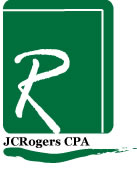The Reverse Mortgage Traps and How to Avoid Them
The Federal Consumer Financial Protection Bureau (CFPB):
Many complaints have been filed against the financial institutions that write reverse mortgages. It is wise to familiarize yourself with these complaints if you are considering signing up for a reverse mortgage.
The two main areas where consumers are complaining about the banks writing reverse mortgages are: 1- Confusion over the terms and requirements of reverse mortgages
2- Problems with the servicing of their loans.
What this tells me is that consumers feel banks are not properly explaining the terms and conditions of the reverse mortgages that they are selling and these consumers are suffering hardships because of this lack of knowledge. The banks are also non responsive to consumers once the loan has been signed.
The Reverse Mortgage at a Glance:
Most reverse mortgages are Federally insured through the Federal Housing Authority (FHA) through the Home Equity Conversion Mortgage (HECM) program, where borrower's age and available equity are the two predominant factors used to determine eligibility. The borrower will enter into a loan arrangement where the bank will disburse money to the borrower each month or when they need it, based on the available equity of the home. The borrower makes no payments and the debt is stacked against the equity of the home. When the borrower dies, the bank calls the loan as being due in full, and if not paid, forecloses on the house.
The Reverse Mortgage Traps at a Glance:
1- Your spouse dies: There is a chance that you can be thrown out of your house by the bank if you are not listed on the loan and your spouse dies. Both spouses need to be listed on the mortgage, or the other spouse may be foreclosed on by the bank and forced out of the house, if they can not pay off the loan. Moreover, the surviving spouse must either meet confusing repayment deferral requirements, or pay the lower of 95% of the FMV of the home or pay the loan balance in full. Despite the bank telling you differently, you will not be able to add the other spouse to the loan once the loan is signed. There are many CFPB complaints where consumers state that the lender falsely assured them that they could add the other spouse to the loan at a later date.
2- No chance to refinance: If you run out of equity, you may not be allowed to refinance your loan and the bank will shut off your cash flow. Accordingly, both the loan proceeds and the accrued interest will diminish your available equity more and more every year. Many consumers complained to the CFPB that the bank charged too high of an interest rate where the variable rate increased too quickly and ate up their equity too soon.
3- No chance to change the terms of the loan: Many consumers obtaining reverse mortgages, feel that the interest rate that they are paying is too high and the lenders will not allow them to change the interest rates or other terms of the loan. Do not sign a loan with a variable interest rate!
If you live in a generational home where adult children are planning to stay in the home, do not get a reverse mortgage. These children most likely will not be able to stop the foreclosure upon your death which is an unforeseen circumstance. This was a frequent complaint to the CFPB, where consumers complained that the banks did not explain this fact to them before signing on the loan.
4-Federal Protection: I do not believe that you are guaranteed protection from foreclosure under Federal Law if your spouse dies and you are not listed on the loan. That 2014 protective law was amended by Congress in 2015 from pressure from the banking industry, and it is now such a confusing mess, containing many exceptions and eligibility requirements.
5- Property Tax and Insurance Trap: You will be required to pay your own property taxes and homeowner's insurance every year. But what happens when your adjustable rate loan eats up all of your equity too fast and your money dries up. Not having the money to pay your real estate taxes and property insurance, which is a requirement under the loan, can result in the bank foreclosing on you. Many consumers filed complaints with the CFPB that they were not allowed to pay the back taxes or enter into a payment plan for the taxes, where the bank foreclosed on them once the default notice was served. Some consumers even complained that the lenders had determined incorrectly, that the taxes were past due, and sent them foreclosure notices.
6- Requirement to Occupy the Home as Primary Residence: Sounds simple enough, but consumers have filed complaints with the CFPB that the banks sent them foreclosure notices when they spent extensive time in the hospital, and the banks were unresponsive to the borrower's responses.
7- Are The Expected (ARM) Interest Rates Disclosed to You by The Bank Accurate? Read this excerpt from a guidance letter from the US Dept of Housing and Urban Development regarding adjustable rate mortgages (ARM).
"In addition, this final rule amended HUD’s regulation at 24 CFR 206.3 to add the use of both the
1-Month LIBOR index and the 1-Month Constant Maturity Treasury (CMT) index for calculating the interest rate adjustments on the monthly adjusting Home Equity Conversion Mortgage (HECM). The final rule also permits the 1-Year LIBOR index for calculating the interest rate adjustments on the annually adjusting HECM. The 10-Year LIBOR swap rate shall be used to calculate the Expected Interest Rate on LIBOR-indexed HECMs."
Wait a minute, if I read this right, the bank is going to give you a good faith estimate of your interest rate charges on your loan based on a 10 year LIBOR rate before you sign, but will apply the 1 year LIBOR rate to your loan after you sign?.
You can go the the CFPB website and read up on these complaints for yourself and I would encourage you to do so before signing up for a reverse mortgage. Makes good sense.
http://www.consumerfinance.gov/


